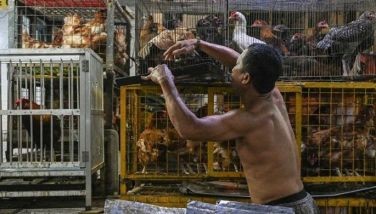Pacific Bio-Fields to list in London
MANILA, Philippines - Pacific Bio-Fields Holdings Plc (PBFHP) will list its shares in London Stock Exchange to raise funds to finance its $600 million project in the Philippines.
PBFHP, the financial and investment arm of the joint Japanese/Filipino group that is developing a biodiesel complex in Northern Luzon, is expected to raise some $30 million from the initial public offering.
The holding company, which is the first Filipino company to be listed under the Alternative Investment Market of the London bourse, is optimistic that it could list its shares by end-September this year.
The PBFHP has four more companies under its wings. These are: Pacific Bio-Fields Holdings Inc., the investment arm; Pacific Bio-Fields Corp. Japan (PBFC-Japan), marketing arm and financial arranger based in Japan; PBFC-Philippines, marketing/financial arranger counterpart in the Philippines; and Bio-Energy NL Inc. (Philippines), the implementor of the group’s projects.
PBFC president Moriaki Hayashida said aside from the $30 million, the company also expects to raise about $150 million from Japan Bank for International Cooperation (JBIC).
According to Hayashida, JBIC has committed to provide 80 percent of financing of the group’s projects as long as they would provide 20-percent equity.
Additional funding for the project, he said, is expected to be raised through combination of concessional loans from Official Development Assistance (ODA) and syndicated borrowings from local and foreign commercial banks.
Initially, the company had started planting coconut seedlings at a 1,000-hectare property in Pagudpud, Northern Luzon.
The group would need at least 100,000 hectares to reach its target production capacity of 300,000 kiloliters of biodiesel in the medium-term. A 300,000 KL biodiesel plant would need a capital investment of around $200 million.
Initial production of the company, he said, would be sold to local biodiesel manufacturers.
Once production perks up to a full level, he said they would start exporting its produce to Japan. Consistent with the World Trade Organization (WTO) rules, the Japanese government mandates for the use of a five percent blend of biodiesel in March 2007.
This biodiesel blend is seen to increase to 20 percent in 2020. It was noted that only biodiesel from coconut has passed the oxidation test of the Japan Industrial Standard (JIS).
Established in 2008, Pacific Bio-Fields intends to create a large-scale plantation and production facility for the production of methyl ester biodiesel from coconut.
- Latest
- Trending


























